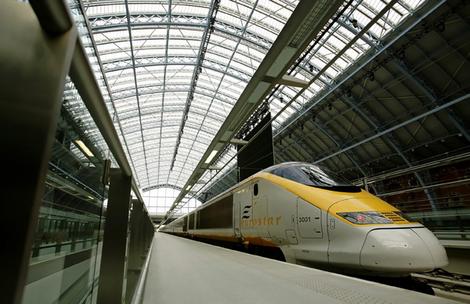
Okay, needed to take a little break to finish up my personal statements for grad school, needed to keep all of my great prose that you expect here (don't laugh!) to that task alone. Street Ballet is now back though and we're so excited for 2009 and doing what we can to help shape cities.
One of the main reasons most people are excited for 2009 is the ascendancy of Barack Obama to the Presidency (and the departure of the worst President the nation has ever had). It was such a beautiful day yesterday with the inauguration that I hate to already start in with criticisms. But, hey, President Obama said it was time to get to work and so get to work for our cities we must.
We've been discussing the special moment that the economic crisis has opened up for a committed investment in our nation's infrastructure from the beginning here. We've already had everyone head over and recommend light rail be a priority in this spending bill. It is a unique moment where the country can radically redefine its development trends, where it can foster a cleaner, greener economy and help us out of one of the worst recessions in a century. Sadly, it appears that Obama is going to let this moment pass and continue us along the path of car-centric, anti-green development. Light rail projects and transit projects are being rumored to get short shrift in the budget proposal and that's a damn shame.
Check out John Judis' article, "Not Doing Enough," on the perception that Obama and his administration don't understand the severity of this recession. He sees light rail and mass transit as the missing component, an investment that not only would update our infrastructure but also revive domestic manufacturing, make the country more energy efficient and add jobs. As he notes, "unlike tax cuts--the benefits of which can be siphoned off in the purchase of imported goods--the money spent would go directly to reviving American industry and improving the country's trade balance." Especially intriguing is his notion that the struggling carmakers could become trainmakers in the future. How wonderful would it be if the very industry that helped destroy cities in the middle of the last century became the same one to lead to their rebirth in the new one. Read the whole article, as Judis also takes a look at the need for structural changes to the global economy to truly bring us back from the scary precipice we stand at now.

No comments:
Post a Comment